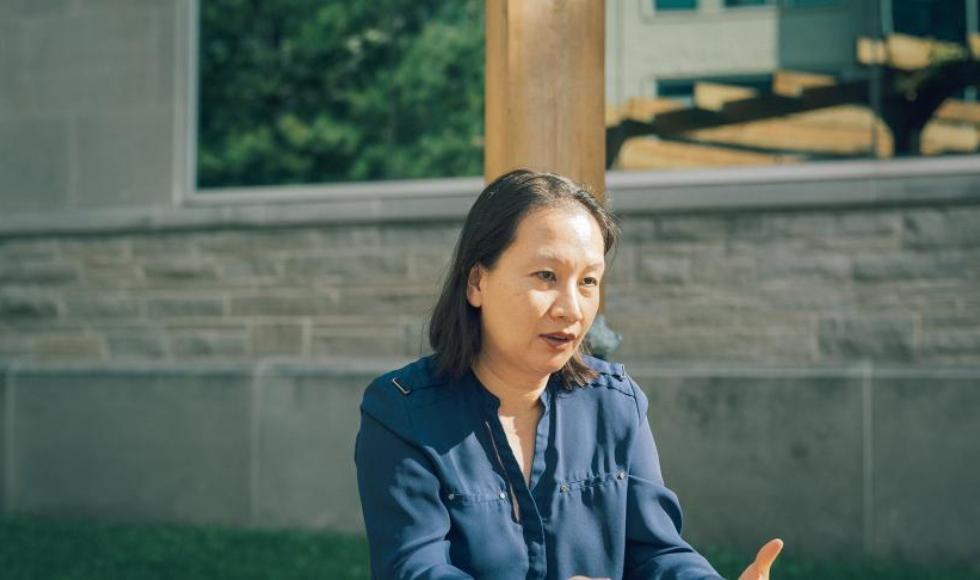Engineering Fresh Faces: Fei Chiang

BY Ciara McCann
October 22, 2018
Welcome to Fresh Faces. In this series, we’re highlighting more than 40 engineering faculty members, all hired in the last five years, who are doing interesting and innovative things in the lab and the classroom.
Fei Chiang is an assistant professor in the Department of Computing and Software and served as the inaugural Associate Director of McMaster’s MacData Institute. In her Fresh Faces spotlight she talks about the influence her father has made on her career path, her work on improving data quality and her love of tennis.
On her father’s influence
My dad has had a big influence on my life. He came to Canada from India and didn’t have many opportunities, and worked very hard, like many immigrants to Canada. For my siblings and I, he instilled the importance of education not only for opening up opportunities, but to learn about different people, and cultures and to be open minded.
He wanted opportunities for us that he didn’t have. As the eldest child, this especially stuck with me. He was good in school and pushed me to do the same. His guidance and push played a big factor.

He taught me a lot about resiliency, as he has had many challenges throughout his life. He taught me how resiliency can keep you going both professionally and personally when things are hard. I carry a lot of that with me today. I still see him often as I live in Toronto and he’s just 20 minutes away.
On her collaborative industry partnerships
I am proud to work in collaboration with a great group of students and industry partners. It’s a pretty tight relationship that is not only having an impact on my students in terms of their learning and experiences, but it’s also helping our industry partners be more productive. The collaborative effort is something that is valuable to me and makes me feel good.
I have been working with IBM for a while now. We are working on improving data quality in some of their software tools. As a database researcher I work with different kinds of data. But data is not just characters and numbers, there’s meaning behind it. For instance, the word “jaguar” can take on different meanings. It could mean jaguar the automobile or jaguar the animal and for a computer there is no meaning behind the word. We’re developing software tools to automate this learning and understanding of different words and their usage in analytics. My short-term goal is to build a data pre-processing system that improves data quality, and has the ability to learn with high accuracy different meanings of data.
On discovering a passion for computer science
In some ways I think I may have fallen into computer science by chance. Growing up and all throughout high school I wanted to be a chartered accountant. I took many business courses and enjoyed economics and accounting because I loved math and numbers. I also liked physics because it allowed me to use math to solve interesting problems. So I took grade 13, or at the time OAC accounting, and I hated it. I couldn’t see myself doing that long-term so I decided to switch. My accounting teacher was really upset.

When I was applying to universities, I wanted to do something with numbers and problem solving. My dad suggested computer science. He said it’s interesting and practical, so why not give it a try? So I did that in my first year at University of Toronto and I liked it. I liked working through a lot of problems, realizing things on paper and building that into a computer system.
On her long-time love for tennis
I love to play tennis. I’ve been playing since high school. I play competitive tennis in a league near my house. I have been trying to get my older daughter to play but she hasn’t been that receptive!
Inside the lab…
I work very closely with my students to solve problems.
Outside the lab…
I watch basketball, play tennis and spend a lot of time with my kids and family.


